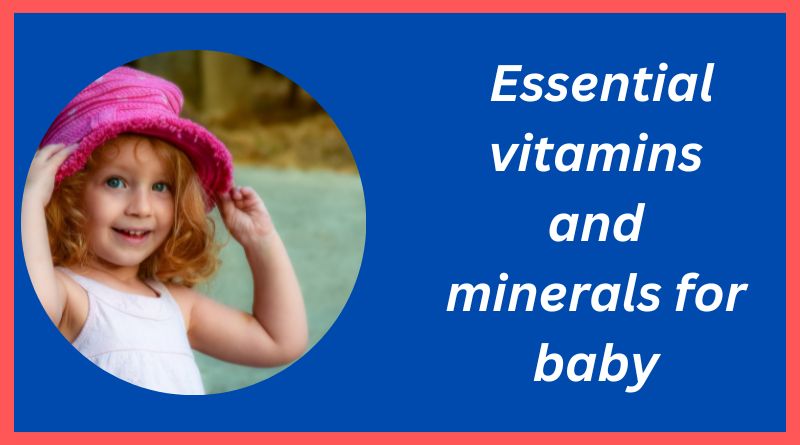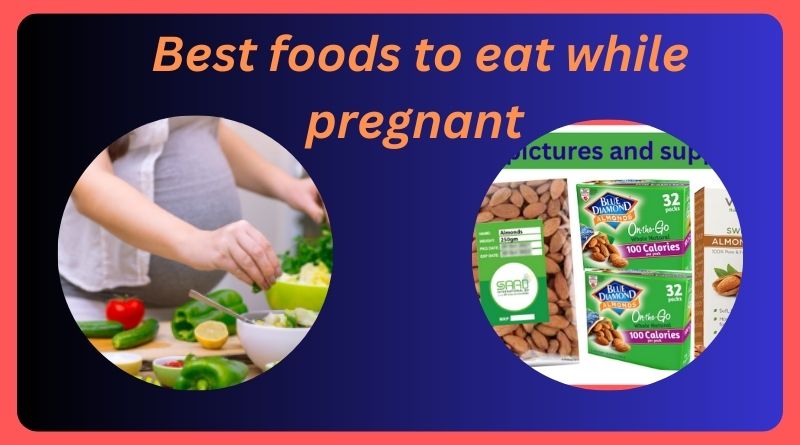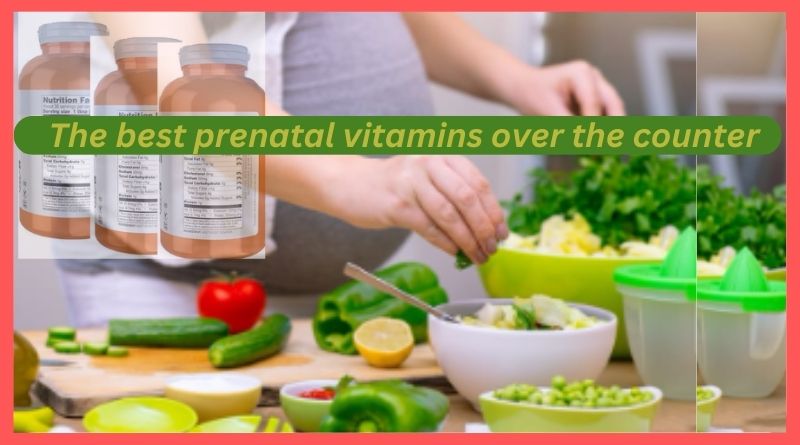Some things to avoid during pregnancy that cause miscarriage: Taking care of yourself during pregnancy is essential, and within this care, food plays a fundamental role. Just as many women wonder what elements should appear in a healthy diet during this period, many have doubts about which foods are prohibited during pregnancy. We are going to tell you.
At this stage of your life, you need to eat a healthy and balanced diet. Unfortunately, many false myths exist about food during pregnancy. For example: do you know that until the third trimester, you should not increase your calorie intake? To control your weight, you shouldn’t trust the belief that during pregnancy you should eat for two.
You must eat a diet that seeks to provide your body with proteins, carbohydrates, lipids, vitamins, minerals, fiber, and water. This will prevent you from suffering from any of the problems that may arise during pregnancy, such as constipation, being overweight, or anemia.
So that you can take care of your diet, today we are going to talk about five foods that are prohibited during pregnancy or with which you must take special care so that the baby does not suffer any harm.
Basic tips for things to avoid during pregnancy that cause miscarriage
*Always wash your hands with soap and hot water for at least 20 seconds before and after handling food.
*Hands and used kitchen surfaces and utensils should be thoroughly washed after handling meat, fish, eggs, unwashed fruits and vegetables, and any other raw food.
*Store cooked food in the refrigerator, in closed containers, and properly placed.
Ensure that they are consumed in a short time and keep them away from cheeses and raw foods.
*Make sure that the refrigerator maintains the correct temperature (not higher than 5ºC).
*Follow the instructions on the label of pre-cooked foods to heat them properly.
Stay away from fad diets:
Numerous apparently healthy diets are becoming popular that may be a risk for the general population and are especially contraindicated during pregnancy. Proposals such as intermittent fasting or detox diets not only do not have scientific evidence of their usefulness, but they can cause adverse effects on the mother and the baby.
Likewise, you should avoid taking food supplements on your own since some may affect fetal development, such as those that contain vitamin A or those that include ginseng in their composition.
Why is it important things to avoid during pregnancy that cause miscarriage
During pregnancy, there are several reasons to be extra careful about what you eat.
Some foods contain harmful toxins or microorganisms that can cross the placental barrier and lead to developmental problems in your baby. Others contain bacteria that could weaken your immune system.
In addition to monitoring what to eat, you must control how much to eat because it is important to eat well: you must also consider that your child is hungry,
The recommended is about 340-450 additional calories per day, and those come from nutritious foods to contribute to the development of the baby. You must bear in mind that what you eat is the primary source of your baby’s nutrition,
so your diet is directly linked to their health. A typical example of this is the indication of folic acid supplementation during pregnancy, which helps prevent neural tube defects from occurring during the early stages of the baby’s development.
Calcium is another very important nutrient for pregnant women, as the baby has a high calcium requirement as it is growing. This is why you should increase your intake to prevent you from having a deficiency of this nutrient.
If before the pregnancy the mother followed a vegetarian diet, when she becomes pregnant she can continue with that diet without major problems. Inform your doctor about your dietary choices and he may prescribe protein supplements and vitamins B12 and D. As for cravings for certain foods, a recurring phenomenon in pregnant women, it is okay to satisfy those cravings, as long as they are not super harmful to the pregnancy. After the third month of pregnancy, they usually decrease.
Read more: The best prenatal vitamins over the counter
Foods to avoid when pregnant first trimester
Raw food:
Read more: best pregnancy sex positions and when to avoid it
Foods to avoid during pregnancy
Prohibited foods in pregnancy or what fruits and vegetables to avoid during pregnancy: The prohibited foods that you should avoid to eat a healthy and balanced diet, and so that the baby does not suffer any harm, are the following:
1. Caffeine, theine, and alcohol:
Although it is not a food itself, pregnant women should moderate the consumption of caffeine and theine.
*These substances are contained in coffee, tea, and cola-based drinks. And is that caffeine affects sleep and heart rate. On the other hand, if pregnancy is at risk, doctors advise completely avoiding coffee consumption.
*As for decaffeinated coffee, its consumption is authorized by experts, as long as it is done in moderation, no more than one cup a day.
*Decaffeinated coffee contains a small percentage of caffeine since no method used to date to extract caffeine from the beans has managed to eliminate it. So while regular coffee contains about 100 mg of caffeine, decaffeinated contains 2 mg.
*Alcoholic beverages are also prohibited during pregnancy since alcohol increases the risk of miscarriage, premature labor, and other complications in childbirth.
*In addition, alcohol hinders the absorption of folic acid and other B vitamins, so essential for the proper development of pregnancy.
2. Salmonellosis:
Salmonellosis is another of the main dangers of eating shellfish during pregnancy.
It is a disease caused by the ingestion of food with a bacterium called salmonella, which causes food poisoning, especially raw meat or fish.
If you decide to eat fish or shellfish at some point, you must check that the cooking is very careful and at high temperatures.
This is so, especially in the case of mussels, octopuses, clams, or shrimp.
And it is that, although they are delicious, they can contain dangerous microorganisms or pathogens.
3. Green potatoes:
Green potatoes should not be consumed either. And it is that this food contains a substance responsible for the poisoning, with symptoms such as gastroenteritis and headache.
4. Undercooked or raw meat
The meat is animal protein, but if you eat it raw you run the risk of contracting toxoplasmosis since the parasite that causes this disease appears in the meat of animals that eat grass.
This parasite remains in raw meat and does not disappear if the meat is undercooked. Toxoplasmosis is a disease that can go unnoticed if you contract it at any time in your life, but if you are pregnant it can cause malformations in the baby.
This is why it is very important to avoid eating raw or undercooked meats. Within this type of meat, there are sausages or cold cuts that are made with raw meat: these will also be prohibited during pregnancy.
Yes, you can include in your diet, however, steamed cold cuts, such as York ham or turkey. Therefore, some foods that are prohibited during pregnancy will be, for example, carpaccio, steak tartare, or Serrano ham.
5. Raw fish
Raw fish does not contain the toxoplasmosis parasite, but it may contain anisakid larvae. These worms do not directly affect the baby, but if the mother contracts them, she can become seriously ill and thus affect the health of the baby.
This means that one of the prohibited foods for pregnant women will be, for example, sushi. To avoid this, you must avoid eating raw fish, and if you want to eat it, you must freeze it for at least 48 hours, to ensure that the anisakis larvae die.
To avoid this disease, you should always cook the fish at a high temperature and check that it is well done, in addition to buying it without the guts or cleaning the fish as soon as possible.
6. Unpasteurized cheeses
When you want to eat cheese, you should always choose cheeses that are cured, pasteurized, and have a hard consistency. Soft cheeses or those that contain mold such as Roquefort can contain listeria bacteria. If this bacteria is contracted it can be very serious for the baby and create many complications in the pregnancy. Better avoid them.
Read more: What are the exclusive benefits of breastfeeding
Which fruits avoid during pregnancy
7. Tomatoes:
Likewise, it is necessary to rule out the consumption of tomatoes, which are rich in a toxic substance that disappears with maturation and can cause gastrointestinal disorders. Consequently, preference must be given to ripe tomatoes, remembering that tomatoes can cause hives and that they should be consumed in a limited quantity.
8. Raw eggs
When you have to eat eggs, you can do it, but always very well cooked. Raw eggs can contain salmonella, which can have serious consequences for both mom and baby. To be completely safe, avoid foods in which the egg is used raw, such as mayonnaise, or dishes such as tiramisu.
9. Salt
During pregnancy, experts also recommend moderating salt intake to avoid fluid retention. And it is that sodium facilitates fluid retention and causes an increase in blood volume that favors the state of hypertension and makes it difficult for the heart to work.
*In addition to reducing salt intake, you must also avoid eating those foods that contain it. Therefore, do not exaggerate with the consumption of preserves and you must always read the labels of processed foods, since many additives contain sodium, such as monosodium glutamate, nitrate, nitrite, citrate, or sodium sorbate.
*For the same reason, it is necessary to limit the consumption of salty cheeses, such as feta or some goat cheeses, and the use of condiments rich in sodium, such as concentrated bouillon cubes, soy sauce, ketchup, or mustard. Also avoid salty snacks, such as French fries or popcorn.
*To replace salt and that your meals have a more intense flavor, you can opt for aromatic herbs. Freeway to spices such as oregano, thyme, or rosemary.
10. Mozzarella cheese:
As we have said, soft cheeses, usually fresh or very smooth, are usually made with raw milk, in their traditional manufacture.
*However, the popularization of these cheeses and their massive consumption, which has promoted the industrial production of these products, has meant that most of these cheeses are now made with pasteurized milk.
*Mozzarella-type cheese is a very good example. Although its traditional preparation uses raw buffalo milk, the industry and the internationalization of this popular food have promoted the use of pasteurized milk in products usually sold in supermarkets.
11. Liver
The liver is a food that contains a large amount of vitamin A and also concentrates in it all the chemical substances that the animal ingests. Vitamin A in large amounts can harm the baby and cause malformations in it, so you should avoid eating livers and pates, to ensure the health of the baby. It is important not to eat these foods, especially in the first trimester of pregnancy.
Read more: Tips for a healthy pregnancy and safe delivery
Conclusion:
The Nutrition Service emphasizes that during pregnancy it is necessary to reduce the consumption of caffeine since it increases the heart rate and the pressure of the mother, and it can also modify the sleep pattern and the movement of the baby. It is important to note that caffeine is not only found in coffee, but also in tea, colas, and chocolates.
Its consumption is not prohibited, but the quantities have to be much smaller than usual. Another thing to avoid is herbal teas because some teas act like drugs, and their effect on pregnancy has not been proven.
The consumption of alcohol and tobacco is not recommended at all. Also, it is important to reduce salt intake. This last recommendation covers the entire population and not just pregnant women.
YouTube


